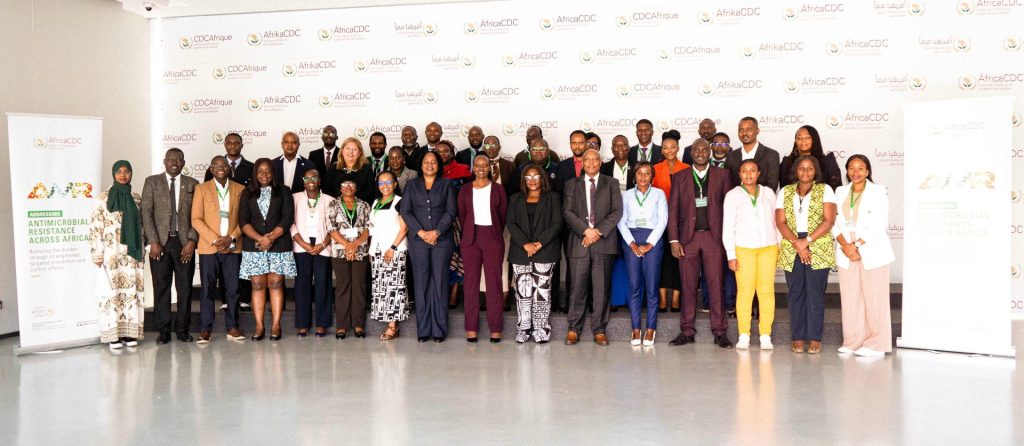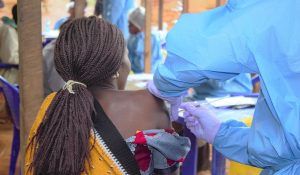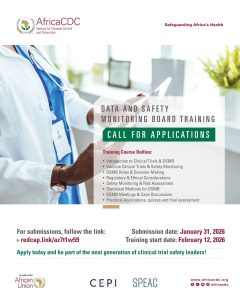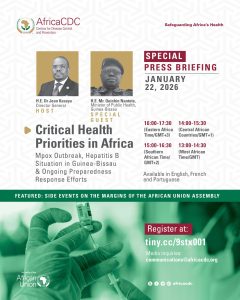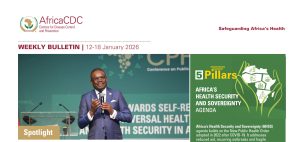Antimicrobial resistance (AMR) continues to escalate into one of the most pressing global health threats of our time. In response, Africa CDC convened the first-ever continental meeting on access to antimicrobials, diagnostics, and vaccines as countermeasures to AMR, bringing together policymakers, regulators, researchers, manufacturers, and development partners to drive urgent action.
From 30 to 31 October 2025, stakeholders met at Africa CDC Headquarters in Addis Ababa to develop a unified roadmap aimed at expanding access to lifesaving antimicrobials, diagnostics, and vaccines. This landmark convening sought to address the critical gaps undermining Africa’s ability to curb AMR and strengthen health security.
In 2021 alone, AMR was associated with more than one million deaths globally. Africa bears the highest mortality rate from AMR worldwide, with 27.3 deaths per 100,000 people—a burden greater than HIV/AIDS, tuberculosis, and malaria combined. The 2024 Lancet Series on AMR, highlights that babies, older people, and individuals with weakened immune systems face the greatest risk.
Without decisive action, experts estimate that AMR could cause up to 10 million deaths every year by 2050, with Africa possibly accounting for more than four million. Limited access to quality antimicrobials, diagnostics, and vaccines—coupled with under-resourced health systems—continues to magnify this threat. The COVID-19 pandemic further revealed structural weaknesses in supply chains and access pathways across the continent.
Held under the theme “Opening the Doors to Access: A Continental Call to Action,” the meeting marked a significant milestone in Africa’s AMR response.
“When we still see health systems struggling to access lifesaving antibiotics and diagnostics, it means we are missing something important. We cannot allow these gaps to persist. I am deeply grateful to all partners—from Member States to donors and manufacturers—who have joined this collective effort,” said Dr Jean Kaseya, Director General of Africa CDC. He urged partners to maintain momentum and collaboration.
“This is how we build trust, share knowledge, and accelerate change. Let us carry this momentum forward to next month’s G20 discussions, where Africa must speak with one voice on equitable access to antimicrobials, diagnostics, and vaccines. Together, we can turn this dialogue into lasting action that saves lives and safeguards our future,” he added.
Dr Kaseya reaffirmed Africa CDC’s commitment to supporting countries and partners through technical assistance, coordinated solutions, and sustained advocacy to ensure equitable and sustainable access.
Africa CDC will continue leading continental initiatives to strengthen AMR surveillance, stewardship, and access through its Antimicrobial Resistance and One Health Programme, said Dr Tajudeen Raji, Acting Deputy Director General of Africa CDC. “Through the Africa Union AMR Framework for Action 2020–2025, we are supporting Member States to develop national action plans, enhance diagnostic capacity, and integrate AMR data into national and regional surveillance systems.”
Africa CDC is also advancing strategic partnerships to promote sustainable manufacturing and equitable access to essential antimicrobials, diagnostics, and vaccines. “This is not only a health priority; it is also an economic, social, and developmental imperative. Building resilient supply chains and manufacturing ecosystems across Africa is critical to ensure that no one is left behind,” Dr Raji noted.
Partners echoed the urgency. “Sustainable access to the right antibiotics and diagnostics is critical in the African response to the escalating crisis of antimicrobial resistance. GARDP is pleased to partner with Africa CDC and others to expand and stabilise access to quality essential antibiotics, especially those in the ‘watch’ and ‘reserve’ categories,” said Carol Ruffell, Director of GARDP Africa.
Evelyn Wesangula, Senior AMR Control Specialist at ECSA-HC, reaffirmed her organisation’s commitment to supporting Member States through the Africa CDC–led stakeholder platform to achieve equitable access to safe, quality-assured medicines, appropriate diagnostics, and vaccines.
A key outcome of the meeting was the advancement of “Closing the Access Gap by 2035,” a 10-year continental roadmap developed with continental and global partners to strengthen availability, affordability, and quality of essential health commodities. This roadmap aims to reduce dependency on external markets, promote local innovation, and secure equitable access for all Africans ahead of the Abuja 2026 AMR High-Level Conference.
The outcomes from Addis Ababa reaffirm Africa CDC’s leadership in championing a One Health approach that integrates human, animal, and environmental health systems to protect Africa’s collective future.
“Antimicrobial resistance is advancing faster than our systems can contain it. We cannot afford inaction. Every delay costs lives, livelihoods, and our collective future. Africa must act decisively investing in local manufacturing, aligning policy, and ensuring essential antimicrobials, diagnostics, and vaccines reach every community that needs them,” said Dr Yewande Alimi of the One Health Unit at Africa CDC.
Next Steps
Africa CDC will consolidate outcomes from the meeting into a detailed implementation plan, intensify coordination with Member States and regional bodies, and begin mobilising partners to operationalise the Closing the Access Gap by 2035roadmap. A series of technical consultations and policy dialogues will follow in early 2026 to ensure rapid adoption and sustained progress across the continent.

